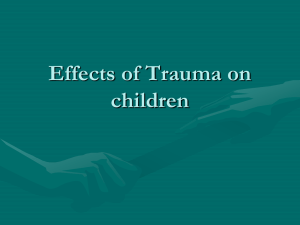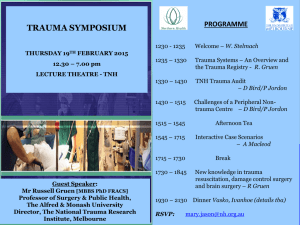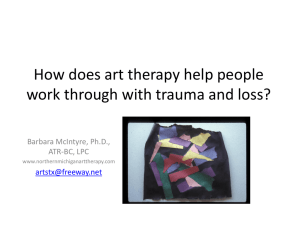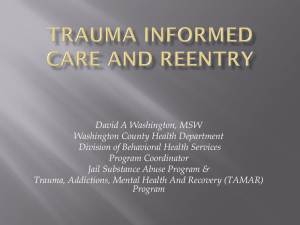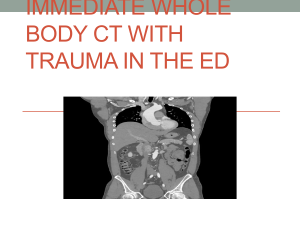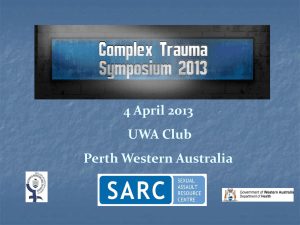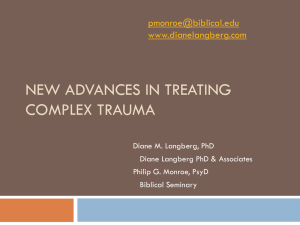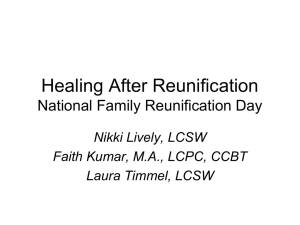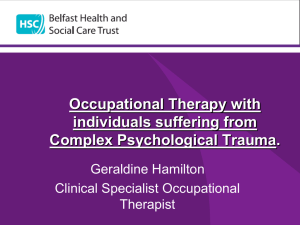Rick Two Dogs Presentation
advertisement
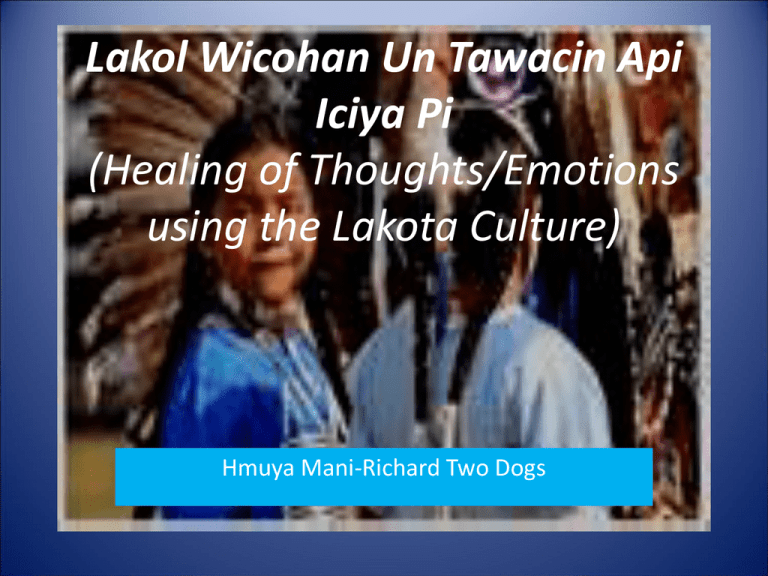
Lakol Wicohan Un Tawacin Api Iciya Pi (Healing of Thoughts/Emotions using the Lakota Culture) Hmuya Mani-Richard Two Dogs Example of Historical Unresolved Grief/Loss Wounded Knee 1890 •Intergenerational loss •Loss of teachings from one generation to the next •No time to grieve appropriately Copyright Richard and Ethleen Two Dogs 2009 Iyowaniye-Historical Trauma Ancestors Eg.Wounded Knee Massacre Iyowaniye-Historical Trauma Grandparents & Parents Eg. Boarding Schools WokaphaIntergenerational transference of Negativity Iyowaniye - Personal Trauma Any type of trauma or unresolved Grief Passed to the next Generation Ki-Wasicu Aye (Assimilation) The Lakota/Dakota/Nakota people have endured generations of oppression, genocide and federal policies designed for assimilation of our people into the “mainstream” of America. Oinajin Topa Lakota Stages of Life NAGI YATA (spirit world) Return to Spirit World Pre-Birth + Age 50+ Positive/Enhancement , e.g. quitting drinking/drugs at age 30 (e.g. strength based perspective) Interruptions to Natural Life Cycle (e.g. abandonment, trauma at age 3) Age 12+ Age 21+ E. Iron Cloud-Two Dogs, 2004 HEALING FROM HISTORICAL TRAUMA AS A PEOPLE Wopakinte (Spiritual Cleansing) • One of the healing ceremonies that is relevant to the native youth who are incarcerated is the “Wopakinte” or “wiping off” ceremony in which the individual goes into the Inipi, after the Inipi, an Elder (or older person) wipes the individual off with sage. If an Elder is not available, the individual can wipe him/herself off with sage. This signifies wiping away the spiritual residue left by the intergenerational trauma that is transferred from our ancestors to the youth as well as the youth’s own individual historical trauma. • It is a Lakota belief that everything has a spirit, therefore grief, loss, anger and rage that the native youth express have a spirit and without a “wopakinte”, our youth can become burdened and become vulnerable. This cultural intervention along with other interventions can prevent transmission of negativity and can lead to a renewed sense of strength. This has resulted in many of our people becoming disconnected from their culture as a way of life. Apiciya Pi (Healing from Trauma) • When an individual experienced trauma, there were cultural interventions that were immediately applied to prevent the traumatic experience from having a long term effect on the individual. Today many of the native youth who are incarcerated in the penal system have experienced trauma but have not had the opportunity to heal through indigeneous cultural interventions.
